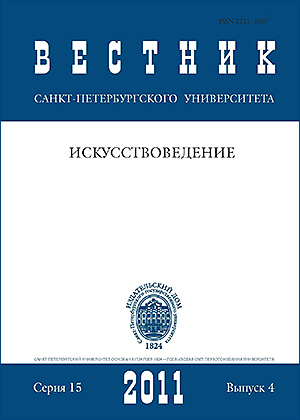Composer — performer — score: paradoxes in Romantic performing art
Abstract
The article analyzes European piano culture in the 19th century. Based on the aesthetic views of Hegel and Wagner and the creative concepts developed by Liszt, Schuman, Anton Rubinstein and their contemporaries, it examines the phenomenon of “co-authorship” and its relation to scores and interpretation in the Romantic period. The complex interaction of performers’ freedom and their faithfulness to composers’ intentions, artistic spontaneity and stylistic authenticity, subjectivity and objectivity is regarded as paradoxes of Romantic art. Having a historical background, these paradoxes predetermine the future evolution of musical consciousness.
Keywords:
performing art, romantic pianism, musical interpretation, piano history
Downloads
References
References
Downloads
Published
How to Cite
Issue
Section
License
Articles of "Vestnik of Saint Petersburg University. Arts" are open access distributed under the terms of the License Agreement with Saint Petersburg State University, which permits to the authors unrestricted distribution and self-archiving free of charge.






